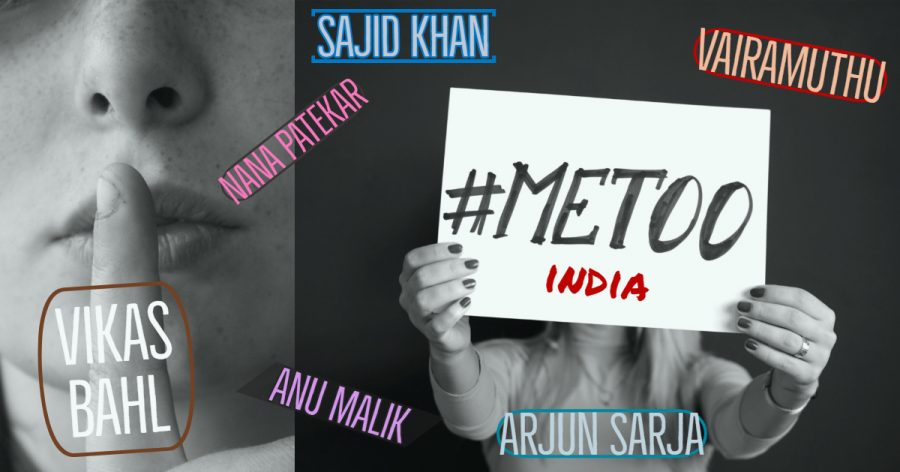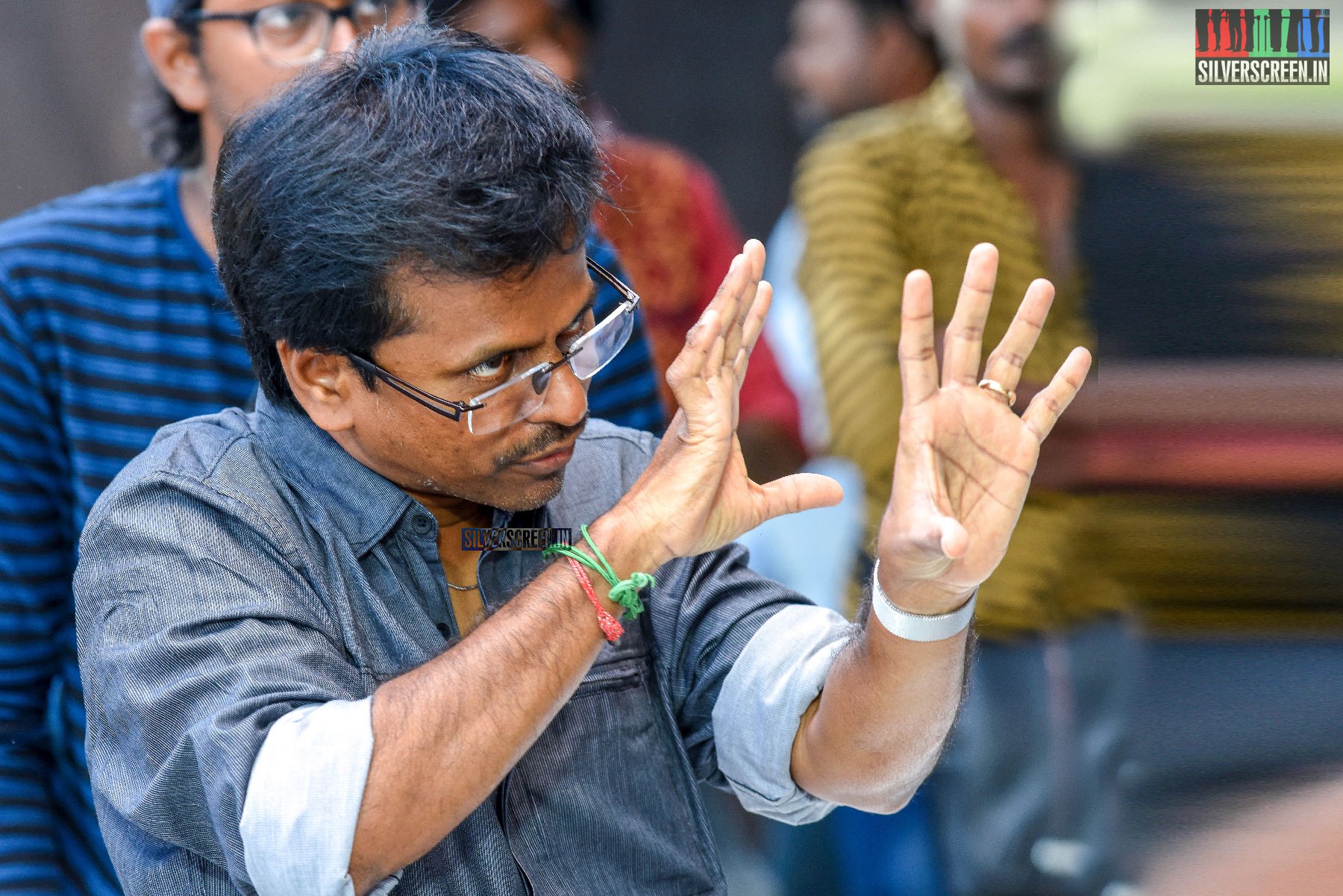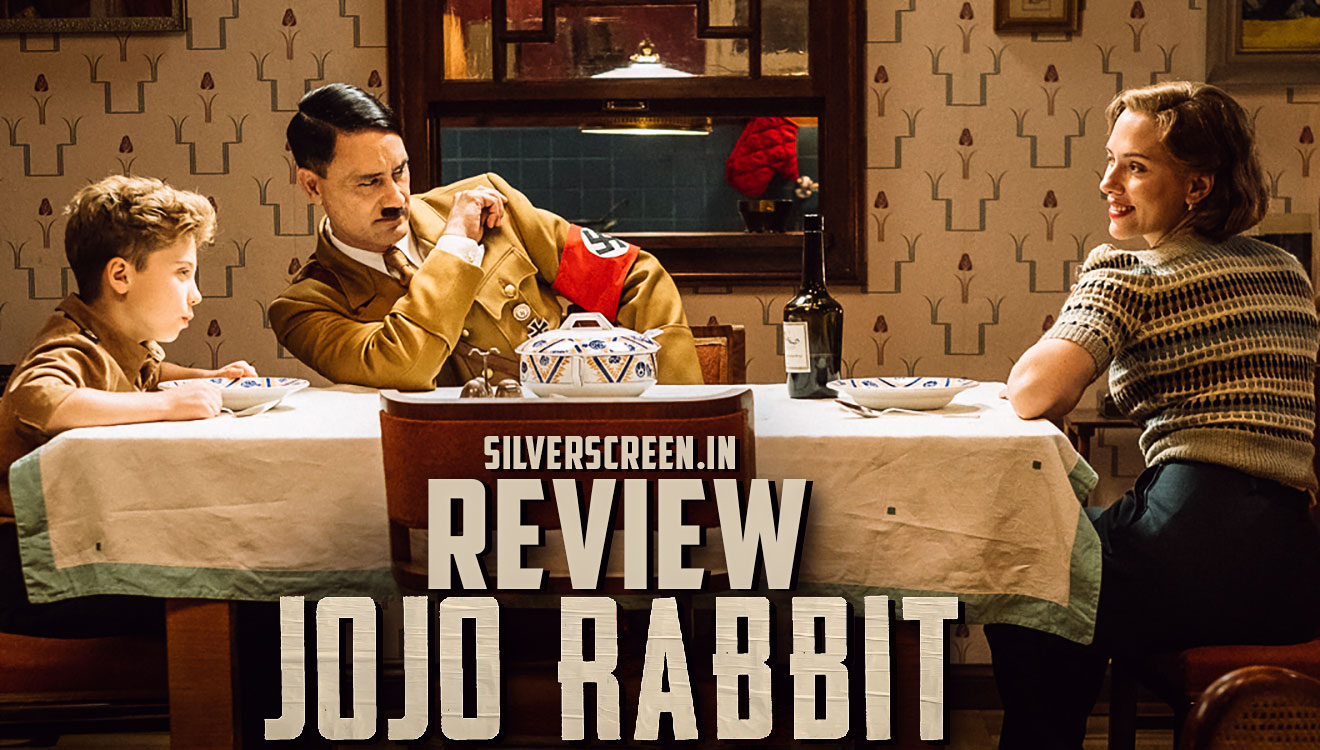Ever since Chinmayi and several other women came out with their accusations of sexual harassment, their statements, their lives – past and present – and more specifically, the charges they levelled against some well-known men in the industry like Vairamuthu have come under brutal scrutiny. The accused, meanwhile, are at ease, revelling in the ruthless treatment meted out to the complainants, safely ensconced in a protective ring of supporters – among which perhaps are the superstars of the industry who, unwittingly or no, are culpable in their silence
In what transpired as some kind of a twisted irony, the behaviour of journalists at the press meet convened by the South Indian Film Women’s Association in Chennai yesterday answered most of the questions that have been hurled at women since the #MeToo movement took root in the country. Facing an openly hostile press – comprising reporters from the Tamil media – were singers Chinmayi and Sri Ranjani, and filmmakers Leena Manimekalai and Lakshmy Ramakrishnan. The four women battled a vehement verbal onslaught to have their voices heard. Despite repeated pleas from Chinmayi and Lakshmy Ramakrishnan, the barrage of questions that the reporters threw at the women on the dais – in tones that sought to drown them out – was, in a strange, warped way, an effective display of the reason why women choose to stay silent when they are harassed. While the women explained themselves hoarse, and were civil and polite in the face of what can only be characterised as a stark representation of blatant misogyny, the reporters were indecorous, with a woman journalist justifying the belligerent attitude of the media present. We were called for a press meet, she yelled, we have the right to ask questions.
The complainants deposed in front of a self-styled jury that tried everything in their means to discredit the explanations and cast aspersions on the women’s actions. Even as the reporters were requested to speak in turn, they were shouted down; pleas for silence were met with continued attempts to intimidate the women. Incredibly, and admirably, the women on stage refused to be cowed down. Perhaps the most absurd – because of who it was directed at – and at the same time, the most pertinent question that they were met with was one about the silence of the men in the industry. Filmmaker Leena Manimekalai, who could barely contain her temper – and rightly so – retorted at the media to point their mikes at those who were complicit in silence. That’s not a question for us, she said.
The irony of women having to share their stories with men who feel the need to shout down, yell, abuse, pander to and safeguard the interests of predators.
Some day, soon, this will change, when rearing the sons as responsibly as the daughters comes to pass.— Chinmayi Sripaada (@Chinmayi) October 21, 2018
In another throw of memory, the meet also brought to mind the Sarkar audio launch that happened a few weeks earlier. When actor Vijay, who took the stage amidst cheers and applause, wanted some silence to start his speech, the crowd fell quiet. All he had to say was ‘thank you.’ Not a similar occasion of course, but it does highlight the unquestioning reverence reserved for male celebrities – which perhaps wouldn’t be any different even if the circumstances were grim. For instance, at the recent press meet held before the release of Sandakozhi 2, Nadigar Sangam general secretary and TFPC president Vishal Krishna addressed the ongoing #MeToo movement, especially the allegations against Vairamuthu, urging women to report harassment as and when they happen. Answering questions posed by a journalist, Vishal seemed to insinuate that women who hold back on their accusations, or those who choose to voice them later, are somehow culpable as well. “Not saying it is a crime,” he said, “but those who have been harassed should speak up immediately.”
The actor was allowed a say, a chance to defend himself without interruption. “Twitter is not an extension of me,” he added, “let it not stand as judgment that I have been silent on Twitter. We are going to form a committee for women – to protect everyone from junior to senior artistes.” He further went on to say that the Nadigar Sangam wasn’t a police station to look into every complaint. “Let’s not give the benefit of the doubt to a doubt,” he said and explained that while he understood the sentiments of everyone who’s come forward, the TFPC were able to help Amala Paul who complained against a dance event organiser of misconduct – “we helped her file a complaint. When something comes to us, we are there for immediate action.”
It's time, Women in our industry speak up & I wil stand by them. Wil form a committee to protect them
I totally respect @Chinmayi #TanuShreDuta & others. Women should inform us as soon as such incidents happen. @Amala_ams informed 1 such incident & we helped her. #MeToo #TimesUp
— Vishal (@VishalKOfficial) October 14, 2018
Vishal also said that survivors must not fear retribution or consequences even if it is someone who’s more powerful and has visible political clout. “Courage is infectious. Chinmayi must not be intimidated by her harasser just because he is famous or was seen sharing a stage with people in positions of power.” Even as he invoked Section 201 of the Indian Penal Code that pertains to the culpability of a person in shielding a crime or causing disappearance of evidence, the crowd listened in silence. “The allegations against Vairamuthu must be proven. We have to abide by the law; if the accusations have merit, we will act.”
*****
When Ponmani, a lecturer of Tamil at Meenakshi College for Women, Kodambakkam retired from her professorial duties five years ago, she met with a reporter to tell a tale. It was an account of her life, one part her, several parts her husband – the lyricist Vairamuthu. In the article that appeared in the Tamil weekly Ananda Vikatan in late September that year, she plays narrator, devoting a fragment of the story to herself; her childhood, her likes, her work, the shared sisterhood with her colleagues who brought food from their homes when she was pregnant, cried and laughed with her through good times and the bad, and also warned her when her husband wanted to enter the glitzy world of cinema [“ஜிகினா உலகம்”]. The rest of it largely revolves around Vairamuthu. She recalls her grandfather’s predictions that she would marry out of caste, remembers falling in love with Vairamuthu through his writings, sparring with him in poetry, the storm their relationship had created back home. There are romantic references to the way their names complement each other, and how Vairamuthu’s book of poetry – ‘Vaigarai Megangal‘ – had had her mesmerized. She refers to it as the first portrait she had of him. Ponmani also alludes to her own calling as a poet, recalls being gently reprimanded by her friends for sacrificing her passion in order to further his, and finally, addresses them all with commentary of her own. The gist of it? He’s the better poet. Ponmani is emphatic in that declaration.
Early in the article, she describes herself as someone who was and has always been child-like, but at the same time, also being in possession of something mature: a strange generosity of spirit that she cannot fathom. Ponmani briefly wonders if this conflicted nature of hers is what that had helped her write. The large-heartedness that had let her husband’s passion take precedence over hers, and later, when he began allegedly sexually assaulting women, young and old – and continued to do so brazenly – a stab of conscience amid the crime of complicity in silence that had made her shepherd away potential victims from his reach. Indeed, as account after account emerges from survivors who had been subjected to his sexual misconduct, three of them talk of his wife, Ponmani.
*****
Thaai Women’s Hostel in Kodambakkam was founded sometime in 2003. An article about it in The Hindu, calls it one of Vairamuthu’s dreams; he had already built a marriage hall in the same area, named after his wife. In the piece, the lyricist attributes the launch of the hostel to Ponmani. A few students of his wife had wanted a “safe, clean space” for women’s lodging and boarding. And so, the hostel, with “three-star facilities” was envisioned to provide “healthy food, protection to women and create an ambiance that felt like home”. It was designed to accommodate over 100 persons, and would have all modern amenities. The writer of the article describes it as having a “plush” lobby with 42 rooms. There will also be a warden and security guards at hand; a set of rules framed to ensure safety of residents – also one of the promises that the hostel’s website makes: “round the clock security and vigilance” – and CCTVs.
Cut to 2018, a former resident of the hostel whose mother was friends with Ponmani, tweets anonymously to singer Chinmayi – one among those spearheading the recent #MeToo campaign. What had begun among women in media outing predators at work in the first week of October soon spread to other industries including cinema. The first account about Vairamuthu emerged on Monday, a couple of days after the movement began. It was soon followed by several others, including one from Chinmayi herself. The former resident of Thaai Women’s Hostel remembers being “floored by Vairamuthu’s humility” at first; he had showed them around the place himself. But coming to live there, she would often spot him entering the rooms for no apparent reason, and recalls being discomfited by his presence. The woman had left the hostel soon afterward. Another account describes the experiences of a person who’s currently an inmate; the lyricist, it says, had often tried to take advantage of the women who lived there. An RJ remembers Vairamuthu playing with their colleague’s hair when they were in the midst of an interview.
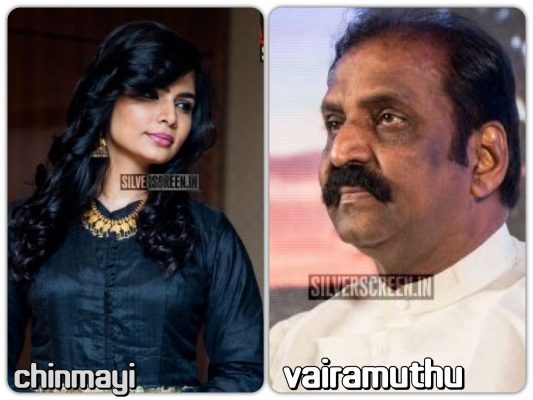 Chinmayi then published her own instance of harassment when she was asked to visit the lyricist in his room in Switzerland in 2003. A colleague of hers, who wanted to be on record, also narrated her experience with Vairamuthu when she was 18, and worked as a sound engineer. He would tell her that he was falling in love with her, and that he had written poems about her. Another woman who had written in calls it an open secret in the industry. “Vairamuthu is a predator,” she says, “but no one will expose him because of his political connections which he uses to silence his victims.” A few of them mention Ponmani in this context, as obviously knowing what her husband was up to, and warning women to stay indoors when he visited the hostel, or “keeping a tab” on visitors who were young women. “I had an appointment to meet him and stopped to say hello to Ponmani who is a poet of note herself, “a woman writes, “She kept calling his office from their residence downstairs. In spite of that he kept shaking my hand. Briefly after, his wife came upstairs under the pretext of asking him something. I realised I was being rescued.”
Chinmayi then published her own instance of harassment when she was asked to visit the lyricist in his room in Switzerland in 2003. A colleague of hers, who wanted to be on record, also narrated her experience with Vairamuthu when she was 18, and worked as a sound engineer. He would tell her that he was falling in love with her, and that he had written poems about her. Another woman who had written in calls it an open secret in the industry. “Vairamuthu is a predator,” she says, “but no one will expose him because of his political connections which he uses to silence his victims.” A few of them mention Ponmani in this context, as obviously knowing what her husband was up to, and warning women to stay indoors when he visited the hostel, or “keeping a tab” on visitors who were young women. “I had an appointment to meet him and stopped to say hello to Ponmani who is a poet of note herself, “a woman writes, “She kept calling his office from their residence downstairs. In spite of that he kept shaking my hand. Briefly after, his wife came upstairs under the pretext of asking him something. I realised I was being rescued.”
Most of the women who had written in seemed to have been in their late teens at the time of the alleged harassment. Some of them, including Chinmayi attest to the fact that the predatory nature of Vairamuthu has always been known to the people who are with him, who work with him. The lyricist though, issued a denial via a tweet, terming it yet another attempt to humiliate him. In a video posted a few days later with the message – “உண்மை இருந்தால் வழக்குத் தொடுக்கலாம் [file a case if there’s truth to the allegations]” – he said that he was ready to face his accusers in court, and was armed with solid evidence.
உண்மை இருந்தால் வழக்குத் தொடுக்கலாம்..https://t.co/dUnanSNCSC
— வைரமுத்து (@vairamuthu) October 14, 2018
*****
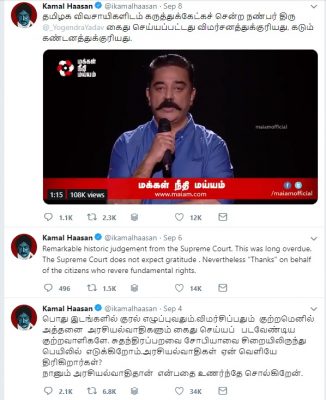
Like Vishal, the men in the industry – except actor Siddharth who has been a vocal supporter – have largely remained cautious with their responses, or been open in their contempt of the campaign. Actors Kamal Haasan and Rajinikanth, future politicians, have opined that the movement must not be misused, while skating over the allegations made by various women against Vairamuthu. “The lyricist has denied the charges hasn’t he? He says he has proof. The accusers must file a complaint,” said Rajinikanth while Kamal Haasan refused to comment on it – “only Vairamuthu must respond to the accusations; not everyone can remark on it – it is not right.” Haasan had earlier expressed solidarity with the anti-Sterlite and Jallikattu protests that happened in the recent past. Actor Radha Ravi, on the other hand, launched into distasteful rants in separate interviews, questioning the right of women in the industry to complain. Describing cinema as a profession where being physically expressive is part of the job, he said that the movement is detrimental to the progress of the industry. Wanting proof for the allegations made against him, he said: “I will take this up legally. The woman who has accused me of such deeds has to take the stand in the court too. My lawyer will pose questions to her. I am not trying to scare; I’m merely posing a warning.”
Composer Iniyavan too, doubted the veracity of the claims made by Chinmayi; his references to Vairamuthu were deferential – sometimes ‘kavignar’, sometimes ‘Imayam’ – while being openly derisive of Chinmayi (“andha ponnu”). Iniyavan and Radha Ravi were unanimous in their opinion that the singer had an agenda, and was making such allegations at someone’s behest.
Other women – and actresses – who had come out against their abusers received similar treatment. While Leena Manimekalai accused director Susi Ganesan of sexual misconduct, he called her a failed filmmaker to whom he had denied an opportunity and filed a complaint against her. Further, he’s also said to have threatened the family of actor Siddharth – the lone male voice in the industry – of dire consequences if he were to continue to supporting Manimekalai.
#SusiGanesan spoke to my aged father on the phone and threatened us with dire consequences if I continue to stand by Leena. So I just want everyone to know that now more than ever… I Stand With #LeenaManimekalai. Stay strong and fight the good fight sister! #MeToo #TimesUp https://t.co/aMNfxXm46M
— Siddharth (@Actor_Siddharth) October 17, 2018
Recently, when actress Sruthi Hariharan, who wrote a post on her Facebook account, detailing an instance of harassment meted out to her by Arjun Sarja on the sets of Vismaya, the director of the film, Arun Vaidyanathan, put out a statement that was in favour of the actor. “The said intimate scene was written much more intimate than what was shot finally and Arjun Sir requested me to tone it down during the scripting stage itself. He said ‘I have teen daughters now and can’t perform such scenes anymore’. I also understood the same and rewrote it entirely different. The above said statements regarding the shoot and the rewrite was a honest portrayal of what really happened [sic],” he wrote.
While it was apparent that the director had sought the opinion of Arjun for the sequence, it was unclear whether he ran the ‘intimate scenes’ by Hariharan. The actress, though, received support from actor Prakash Raj, who tweeted a statement in her favour, and also from fellow Kannada actress Shraddha Srinath.
Meanwhile yesterday, after filmmaker Lakshmy Ramakrishnan accused popular film Kollywood PRO Nikkil Murugan of “crossing the modesty line and expressing right to favours”, the PRO, responding to her tweet, expressed regret at his actions, and vowed to act in accordance with her request “to treat women as professionals based on the talent.”
Met @LakshmyRamki & I apologised for making her uncomfortable Unknowingly . & her request to treat women as professionals based on the talent is assured from my side & will work towards levelling the Ground for all Professionals & I will stand with #MeToo
— Nikkil (@onlynikil) October 22, 2018
*****
The filmmakers and other actors in the Tamil industry continue to hold their silence. Popular heroes Vijay, Suriya, Karthi and Ajith remain famously mute; Vijay had earlier tried to rein in his fans after they launched a vicious verbal attack on journalist Dhanya Rajendran for an unfavourable review while Suriya’s fans trolled a woman VJ for making light of the actor in a show. Suriya responded by tweeting to his fans to not degrade themselves by reacting to ‘classless criticism’. Top filmmakers including Mani Ratnam seem to be looking the other way, as are the actresses. Jyothika, who has been indulging in a brash display of girl power film after film hasn’t come out in support yet, nor has Nayanthara whose last film Kolamaavu Kokila, in a way, was about taking on oppressors. Trisha, whose 96 is the talk of the town, continues to tweet about the film while ignoring the storm around her; a Twitter chat with her followers that happened last evening was mostly confined to her films and other interests. The deafening silence of composers, singers – one among whom is also accused of harassment – and the rest of the music fraternity cannot be ignored, too. Apart from composer Ghibran and singer Sunitha Sarathy, there has been no show of solidarity; especially from A R Rahman, Chinmayi’s mentor – who offered her a break into movies with “Oru Dheivam Thantha Poove” for Kannathil Muthammittal (2002). A R Reihana though, in a recent interview with News 7, revealed that she has heard from other women about Vairamuthu, and that she stands by Chinmayi. “But she should have spoken out when it happened,” said Reihana, “There were several other names that have come out too, bring them out in the open as well. Why target Vairamuthu?” Responding to rumours that said AR Rahman may not work with Chinmayi in the future, Reihana, while observing that her brother doesn’t work with “controversial people” added that she cannot speak for him.
Recommended
Perhaps the most vocal among the few actresses who have come out in support is Varalaxmi Sarathkumar who had launched the Save Shakti campaign to address sexual harassment in the industry. Right from tweeting posts in favour of #MeToo to actively participating in talk shows and discussions about the movement, Varalaxmi, who is also hosting a program on Jaya TV on social issues, said that the industry continues to labour under “false pretences”. In a largely lucid interview with Puthiya Thalaimurai TV, the actress – right from condemning the way victims are mercilessly questioned and shamed, to opining that Chinmayi is famous in her own right and doesn’t need to bat for publicity this way, and calling out the “radio silence” of the Tamil film industry – posed simple and pointed questions to doubters. “There are good people in Tamil cinema,” she declared, “but their collective silence makes me wonder – either they are guilty of having done something similar themselves and are scared, or don’t really care about what’s happening.” Both aren’t great reasons to quote, said Varalaxmi, “I’m very shocked at the way the industry is quiet; it just doesn’t want to accept that this [#MeToo] is happening.”
*****
[Edited to add: Composer A R Rahman tweeted in support of the #MeToo movement last night. His statement did not name singer Chinmayi or lyricist Vairamuthu; both of them have collaborated with Rahman on various projects.]
